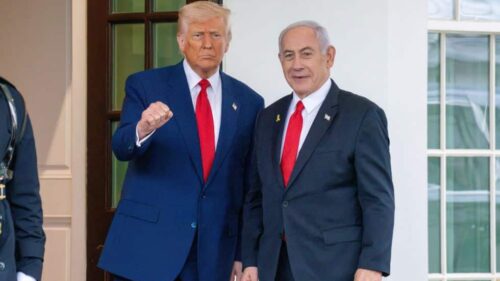Indonesian President Prabowo Subianto recently announced that his country may partner with China, Russia or the United States to build its nation’s first nuclear power plant by 2032. This development, which shares an energy surplus of 500 megawatts with two of Indonesia’s three largest islands, Sumatra and Kalimantan, marks a new energy frontier for the so-called Equatorial Emerald.
Nonetheless, while nuclear power could reduce domestic fossil fuel dependency and diversify the nation’s power source potential, the partners with whom the nation collaborates on this project will be most responsible for any potential generational fallout. As the Indonesian government’s 2025-2034 electricity development roadmap fails to articulate that risk, we can discuss it from the perspective of a Chinese agreement in particular.
Approaching with Caution
Although signing a nuclear contract with China is not inherently problematic, as Indonesia has long benefited from its past infrastructure and trade cooperation, understanding what the Middle Kingdom could gain from this deal can help us see why any such partnership must be approached with care.
Investing in nuclear technology is a regulatory ecosystem of commitment, demanding an extensive safety protocol, waste management system and technical support team for optimal energy return. With that said, as China aggressively promotes similar contracts abroad, including those for small modular reactors (SMRs), its continued debtor transparency issues could scare any potential buyers.
Should Indonesia still embrace an offer from China, their government must know that many of these project exports include state bank-supported finance packages, lengthy fuel supply agreements and often opaque clauses obligating their suppliers’ continued loyalty beyond construction timelines.
Into the Future
Unless President Subianto is comfortable with China using his country as a testing ground for their historically unreliable technology, or giving them prolonged control over Indonesia’s energy network, then he may best find a new ally.
Open negotiation, straightforward financing and incessant project oversight could ensure the security of Indonesian interests over another nation’s ambition. Therefore, as nuclear power is fast approaching the Equatorial Emerald, let us make sure it arrives on fair terms.
[Nick St. Sauveur edited this piece.]
The views expressed in this article are the author’s own and do not necessarily reflect Fair Observer’s editorial policy.
Support Fair Observer
We rely on your support for our independence, diversity and quality.
For more than 10 years, Fair Observer has been free, fair and independent. No billionaire owns us, no advertisers control us. We are a reader-supported nonprofit. Unlike many other publications, we keep our content free for readers regardless of where they live or whether they can afford to pay. We have no paywalls and no ads.
In the post-truth era of fake news, echo chambers and filter bubbles, we publish a plurality of perspectives from around the world. Anyone can publish with us, but everyone goes through a rigorous editorial process. So, you get fact-checked, well-reasoned content instead of noise.
We publish 3,000+ voices from 90+ countries. We also conduct education and training programs
on subjects ranging from digital media and journalism to writing and critical thinking. This
doesn’t come cheap. Servers, editors, trainers and web developers cost
money.
Please consider supporting us on a regular basis as a recurring donor or a
sustaining member.
Will you support FO’s journalism?
We rely on your support for our independence, diversity and quality.











Comment